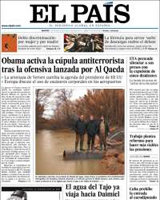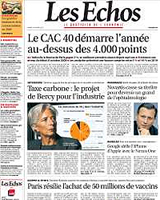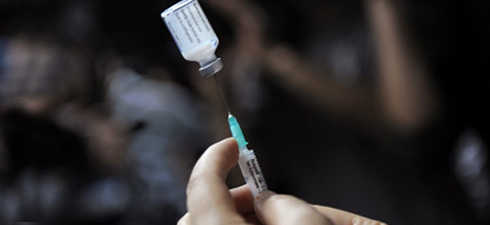
After the panic, the polemics. Now that the H1N1 flu looks to be less serious – and Europeans less keen on vaccination – than expected, several governments are looking for a way to unload surplus stocks of vaccine. On 7 January, the health ministers of the German Länder will begin negotiating with GlaxoSmithKline labs to cancel half the German government’s order for 50 million doses all told. To date only 10% of the country’s population has been vaccinated. According to the Tagesspiegel, Berlin is thinking of unloading surplus stocks on countries like Iran, Iraq, Kosovo, Ukraine and Turkey.

Over in France, the government has just cancelled an order for 50 million doses, out of a total of 94 million, and is looking to sell off tens of millions of doses whose expiration date is fast approaching. 300,000 shots have already been sold to Qatar and 2 million to Egypt. The Netherlands is planning to resell 19 million of the 34 million shots bought to date. Spain, for its part, has blocked the production of 23.5 million of the 37 million doses originally requested “thanks to a saving clause in the contracts” that allows it to adjust supplies to requirements, explains El País. The health ministry is now looking into “the possibility of giving away or selling” purchased injections, once population groups at risk have been vaccinated, notes the Madrid daily. Unused stocks could be sold to EU countries like Poland or Bulgaria that have no deal with the manufacturing laboratories. "These vaccinations could be sold at prices below what the health ministry paid for them, as a measure of solidarity with those European countries, or given away to developing countries, as US president Barack Obama has suggested,” reports El País.
Better too much than too little?
 "Vaccine worse than flu,” headlines Dziennik Gazeta Prawna, deploring the “waste” of huge sums of money spent on the vaccinations. The Warsaw daily cites Marc Gentilini, a French expert on infectious diseases, as saying, "The Polish authorities were right to refuse to buy the vaccines.” But in Gazeta Wyborzca, Dr Jacek Mrukowicz of the Polish Institute for Evidence Based Medicine says Western governments did what had to be done in buying the shots: “In the face of a pandemic, you’re better off having too much vaccine than having none.” The Polish opposition remarks that the only reason the government didn’t buy any vaccine was that there was none to be had at the peak of the pandemic.
"Vaccine worse than flu,” headlines Dziennik Gazeta Prawna, deploring the “waste” of huge sums of money spent on the vaccinations. The Warsaw daily cites Marc Gentilini, a French expert on infectious diseases, as saying, "The Polish authorities were right to refuse to buy the vaccines.” But in Gazeta Wyborzca, Dr Jacek Mrukowicz of the Polish Institute for Evidence Based Medicine says Western governments did what had to be done in buying the shots: “In the face of a pandemic, you’re better off having too much vaccine than having none.” The Polish opposition remarks that the only reason the government didn’t buy any vaccine was that there was none to be had at the peak of the pandemic.

So is that the end of the story? Back in Berlin, the Tagesspiegel warns on its front page that a new wave of swine flu is not to be ruled out. “No-one knows how the virus will evolve in future,” points out a government spokeswoman quoted by the daily. In an editorial the Tagesspiegel reminds readers that, when the virus first broke out, the population panicked and politicians reacted. Which is why we shouldn’t criticise the political establishment or sell the vaccine before putting the danger behind us once and for all. And back in France again, where only 4.5 million people have been jabbed, the controversy is mainly over the principle of caution: Did the government overreact in the name of caution? "Over the past 20 years of continual revelations of shortcomings in public health administration […], the authorities have been censured for not doing enough, rather than for doing too much,” recalls Les Echos. “‘Fiasco’, ‘scandal’, ‘mistake’: it’s all too strange but true that in these terms, ordinarily reserved for denouncing reprehensible inaction, the voices of the opposition mean to discredit an excess of intervention. This ‘trial of prudence’ is all the more dishonest in that it comes after the epidemic has – temporarily – subsided and scientific uncertainty has been – partially – dispelled."
Was this article useful? If so we are delighted!
It is freely available because we believe that the right to free and independent information is essential for democracy. But this right is not guaranteed forever, and independence comes at a cost. We need your support in order to continue publishing independent, multilingual news for all Europeans.
Discover our subscription offers and their exclusive benefits and become a member of our community now!












